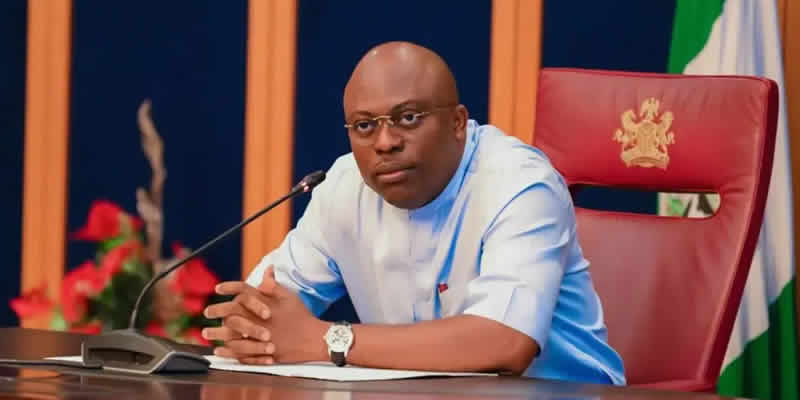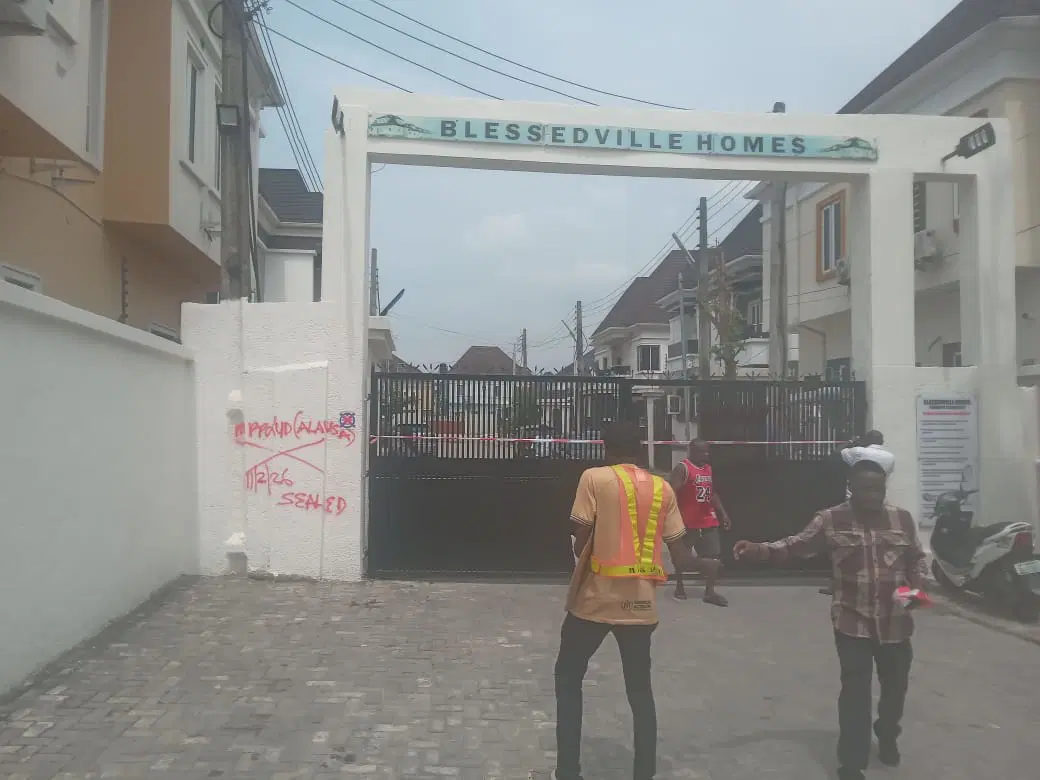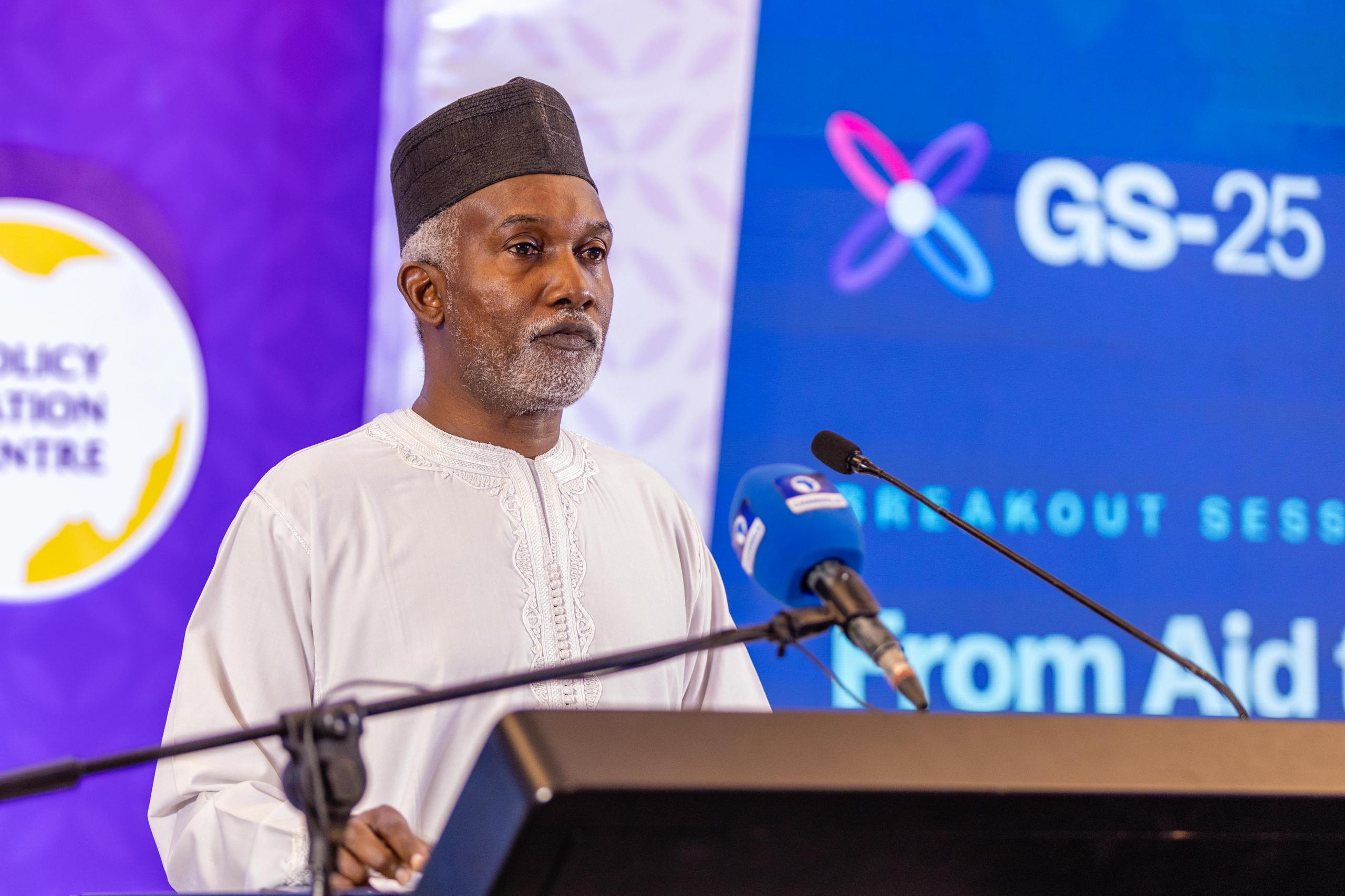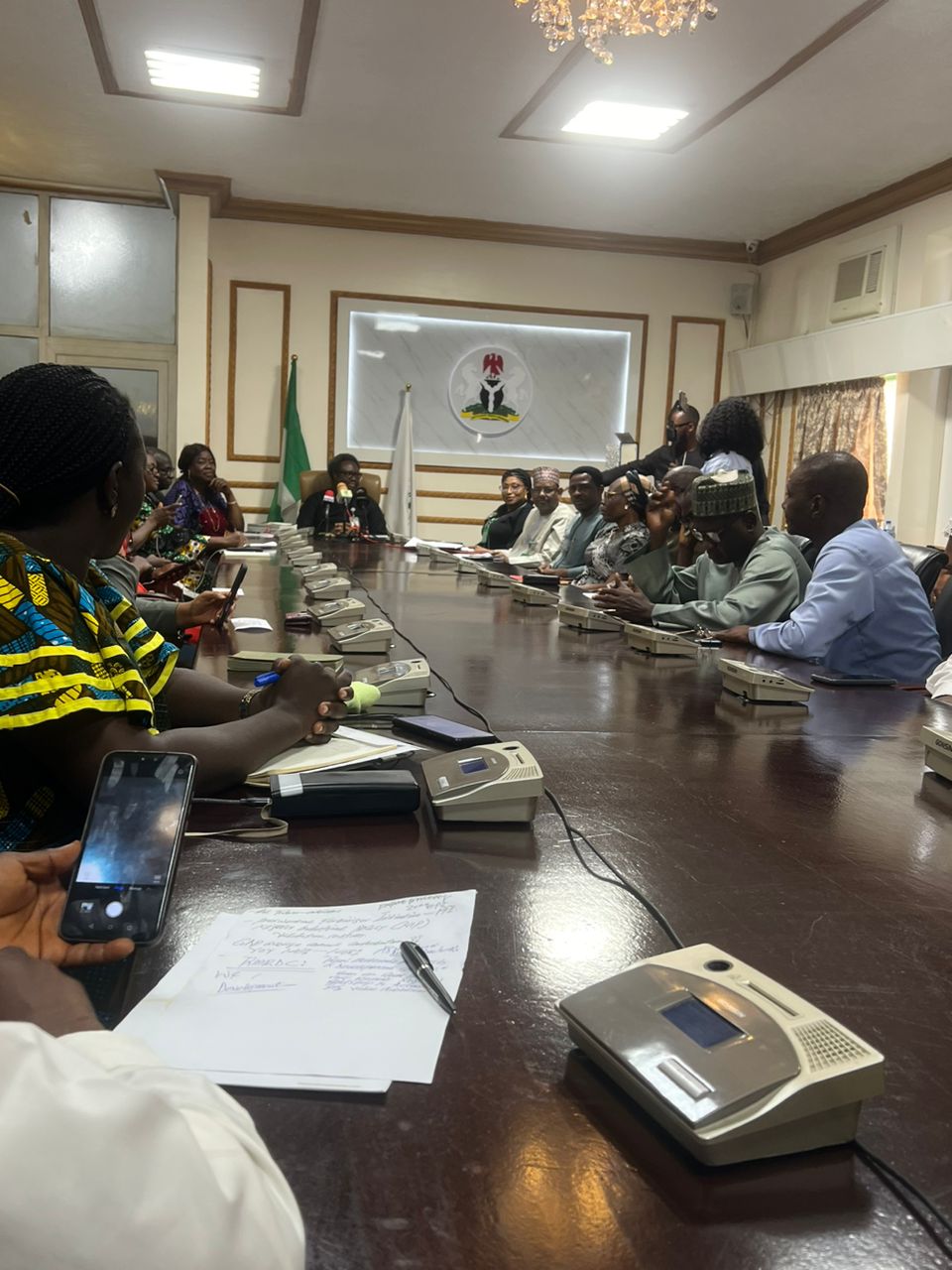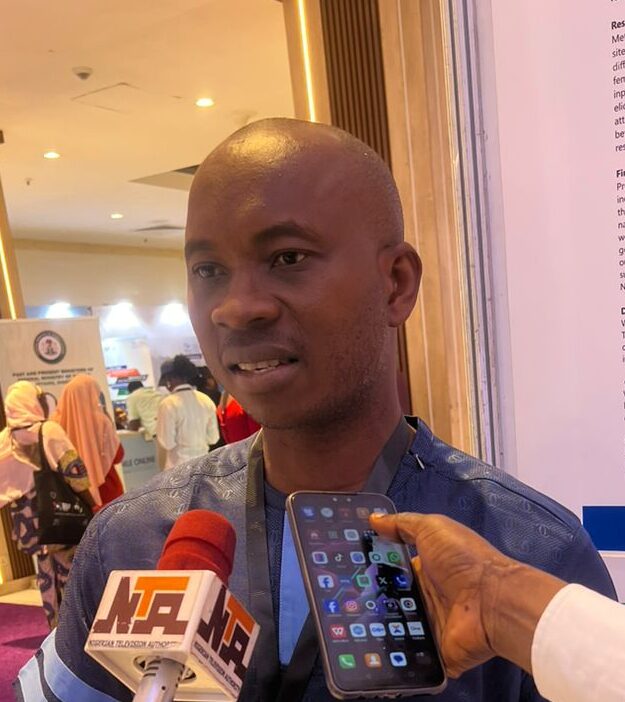By: Goodluck E. Adubazi, Abuja.
Speaking at the 2025 Gender and Inclusion Summit on Thursday, September 4, 2025, at the Abuja Continental Hotel, Nigeria’s Minister of Foreign Affairs, Ambassador Yusuf Maitama Tuggar, delivered a forceful keynote on the continent’s shift “From Aid to Investment,” urging stakeholders to reimagine economic diplomacy as a vehicle for inclusive development.
Tuggar highlighted Africa’s economic potential, with a projected population of 2.5 billion by 2050 and a combined GDP of $2.8 trillion, while warning that growth without equity remains fragile.
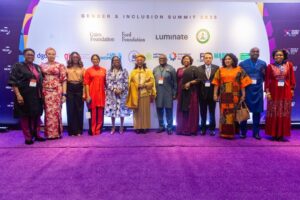
He pointed to glaring gender gaps across education, politics, and economic participation, citing UNESCO’s alarming report that 7.6 million Nigerian girls remain out of school. Emphasizing that inclusivity is not charity but a strategic imperative, he called for dismantling systemic barriers and leveraging Nigeria’s 4-D Diplomacy Agenda, Development, Demography, Diaspora, and Democracy, to ensure that women and youth are central to the continent’s transformation.
The minister spotlighted several key domestic and regional initiatives, including Nigeria’s Regional Partnership for Democracy, the hosting of the West Africa Economic Summit, and the enforcement of gender-responsive frameworks such as the National WEE Policy, the INEC Gender Policy, and sustainable banking principles. While praising the rise of women leaders in Nigeria’s financial sector, he stressed the need to accelerate gender inclusion in both public and private spheres.
He also advocated increased investment in youth through programs such as the 3 Million Technical Talent (3MTT), the Nigeria Youth Investment Fund, and the Student Loan Act. Calling on all actors to adopt the Gender and Inclusion Framework for Economic Diplomacy (GIF-ED) and the Purple Book of Action Plans 2025, Tuggar concluded with a powerful message:
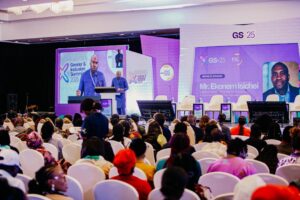
“Equity is not optional. Inclusion is not charity. They are the foundations of a prosperous, stable, and sustainable Africa.”
In the same vein, the Mexican Ambassador declared: “From Lagos to Mexico City: Gender Equality is Not a Luxury — It’s a Necessity.”
Delivering a goodwill message at the Gender and Inclusion Summit 2025 in Abuja, a representative from Mexico called for urgent, collective action to place women and girls at the heart of public life, development, and policymaking. Drawing from Mexico’s own journey toward gender parity, including constitutional mandates, a female President-elect, and institutionalized gender policies, the envoy underscored that gender equality is not a Western ideal but a universal human right rooted in dignity and opportunity.
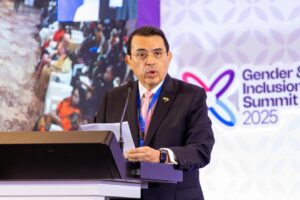
Citing Nigeria’s rich diversity and dynamic female leadership, the envoy emphasized that true inclusion must extend beyond gender to include youth, indigenous peoples, and persons with disabilities. With a nod to shared challenges and mutual respect, Mexico pledged deeper collaboration with Nigeria and African partners, asserting that empowering women is not only a moral imperative but also a smart economic strategy that could add trillions to global GDP.
“Let us work for a future where being born a girl is not a disadvantage, but a beginning full of promise,” the envoy concluded.
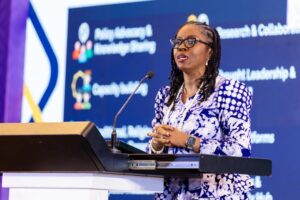
In a related development, Ekenem Isichei, Deputy Director of Programme Advocacy and Communications at the Gates Foundation, delivered a compelling keynote emphasizing the urgent need to protect and scale recent gains in women’s health and economic empowerment amid declining global support.
Speaking on behalf of the Foundation, she noted that bilateral aid to Nigeria has dropped by 40 percent, with a staggering 67 percent cut in maternal and child health funding, threatening recent progress in reducing maternal mortality and expanding female labor force participation.
Isichei applauded initiatives such as the National Women’s Economic Empowerment (WEE) Policy and its state-level adoption, the relaunch of the Basic Healthcare Provision Fund (BHCPF 2.0), and private sector efforts such as expanded parental leave policies at WEMA and Access Banks. She urged government, private sector, and civil society actors to go beyond policy adoption and invest in real delivery, including gender-responsive budgeting, timely fund releases, and institutional capacity-building.
Reaffirming the Gates Foundation’s $2.5 billion commitment to women’s health R\&D through 2030, she called for collective action to turn frameworks into outcomes, stressing that inclusive growth is not just a moral imperative but a strategic necessity for Nigeria’s future.
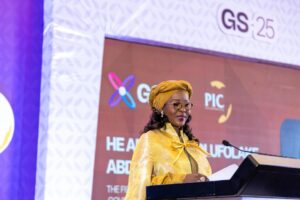
Also speaking at the summit, Imo State First Lady, Barr. Chioma Uzodimma, emphasized the need for innovative approaches to achieve a truly inclusive society. She outlined Imo’s progress under Governor Hope Uzodimma in promoting gender equality, including landmark female appointments and policy reforms such as the Disability Inclusion Law.
Through her GoodHope Women Flourish Initiative, over 6,000 women and youth have been empowered across sectors such as health, education, and economic development. She pledged support for the National Women’s Economic Empowerment Policy and reaffirmed her ongoing advocacy through First Ladies Against Cancer (FLAC). Praising the N1 billion donation by First Lady Oluremi Tinubu to fight cervical cancer, she called for bold, unified action to dismantle systemic barriers and foster inclusive growth nationwide.
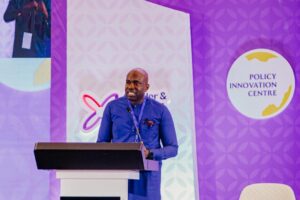
Also speaking, Dr. Iziaq Salako, Nigeria’s Minister of State for Health and Social Welfare, emphasized the Federal Government’s commitment to adolescent health and gender equity. Addressing key challenges such as gender-based violence, poor access to reproductive services, and child marriage, he launched the Nigeria Survey on Gender Norms to inform transformative policies for youth aged 10–14.
Salako highlighted government initiatives such as the HPV vaccination campaign, which has reached over 14 million girls, capacity building for healthcare workers, and international collaborations. He called for stronger state-level support, gender-transformative approaches, and actionable outcomes from the dialogue to ensure inclusive development and a better future for Nigerian adolescents.



